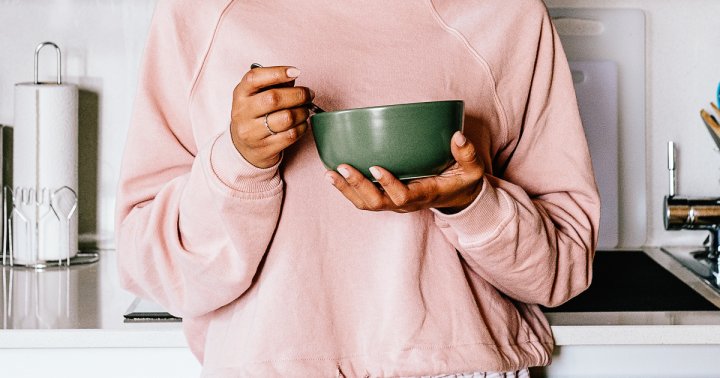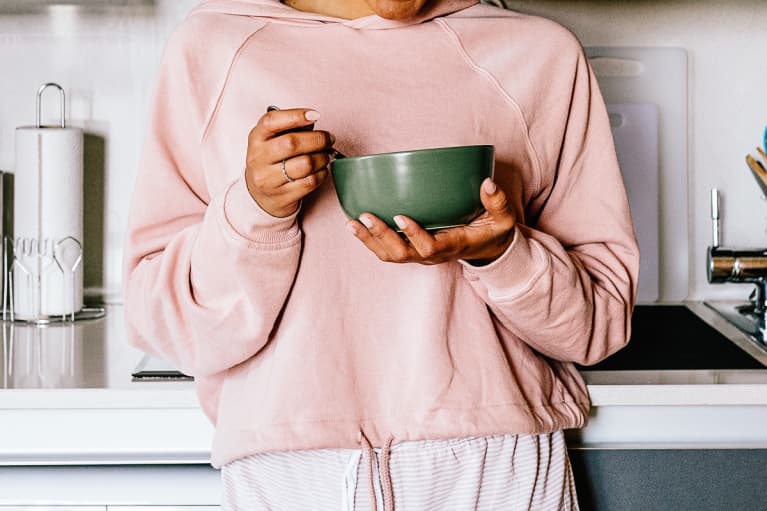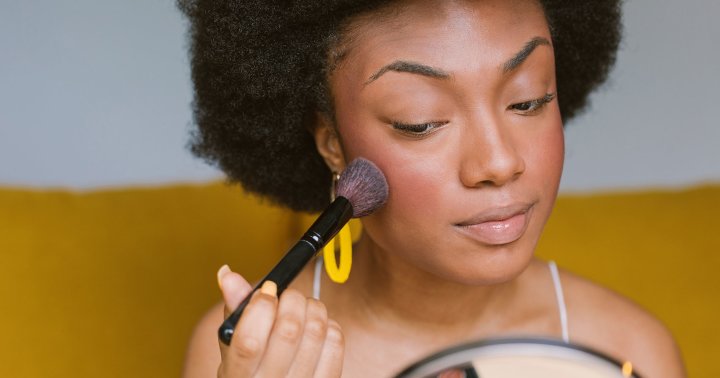Avoid These 6 Foods If You Want To Sleep Through The Entire Night
And what to replace them with.


To eat a bedtime snack or not to eat a bedtime snack? That's the question. On the one hand, going to bed on an empty stomach can activate cortisol, the stress hormone. But on the other, eating certain foods too close to bedtime can disrupt your sleep, too. For some more insight on which snacks to go for—and which ones to avoid—we asked registered dietitian Julie Stefanski, M.Ed., RDN.
6 foods & drinks to avoid before bed:
If you're a big fan of spicy foods, you might be better off saving them for lunch or an early dinner, Stefanski tells mbg.
That's because your favorite curry can mess with digestion, even in the middle of the night after you've already fallen asleep. Spicy foods also have high levels of capsaicin, a phytochemical that increases metabolism and thermogenic (calorie burn for heat), which can also interfere with some people's sleep.
Stefanski notes that alcohol is well known for disrupting sleep, and plenty of research confirms this. Not only does it interfere with REM sleep, but it can also make waking up the following morning that much more difficult.
Fried and fatty foods are also known to disrupt digestion during the night, Stefanski explains. Healthy fats like nuts and seeds or avocado, for example, are fine, but saturated fats and fried foods are best avoided.
Stefanski notes that one of the best approaches to evening eating is to try to decrease stomach acid production. Not eating too close to bedtime will help this, and of course, simply avoiding acidic foods is also a good bet. This includes everything from sugar to grains, certain dairy and meat products, and baked goods. Check out our comprehensive guide to acidic foods for more information.
5. Carbonated and caffeinated beverages
Remember that caffeine isn't the only caffeinated beverage to avoid before bed: Soda and caffeinated tea can keep you awake, too. Even if you think you're unaffected by caffeine, it's still a good idea to have a cutoff time during the day, she adds. Carbonated beverages, Stefanski explains, can also disrupt digestion.
Lastly, as a general rule of thumb, you should avoid eating large amounts of any food before bed, Stefanski tells mbg. Trying to fall asleep with a full belly is far from comfortable, and continuing with digestion through the night requires energy. Eating larger lunches and lighter dinners tends to help promote sleep.
If you're in need of a bedtime snack, don't worry; there are options that can actually be sleep-supporting rather than sleep-inhibiting.
Magnesium-rich foods like bananas, chickpeas, nuts and seeds, and dark chocolate can all satisfy your nighttime hunger while also giving you a healthy dose of magnesium, which is known for supporting sleep.* Just be sure to keep it light, as you don't want to overdo it and end up too stuffed.
To get your magnesium fix without risking stomach upset, you can also take mbg's sleep support+ supplement, which combines magnesium with other proven sleep enhancers like jujube and PharmaGABA® for deeper sleep and more energized mornings.*
Everybody (and every body) is different, but there are certain types of foods that tend to disrupt sleep. If you're experiencing sleep issues, try cutting the aforementioned food and beverage groups from your nightly diet. When you do reach for a bedtime snack, instead go for magnesium-rich, sleep-supporting snacks.
If you are pregnant, breastfeeding, or taking medications, consult with your doctor before starting a supplement routine. It is always optimal to consult with a health care provider when considering what supplements are right for you.
https://www.mindbodygreen.com/articles/foods-to-avoid-before-bed

 Aliver
Aliver 































